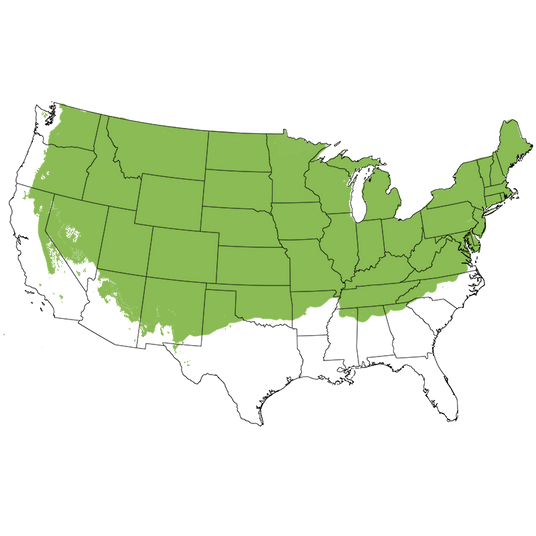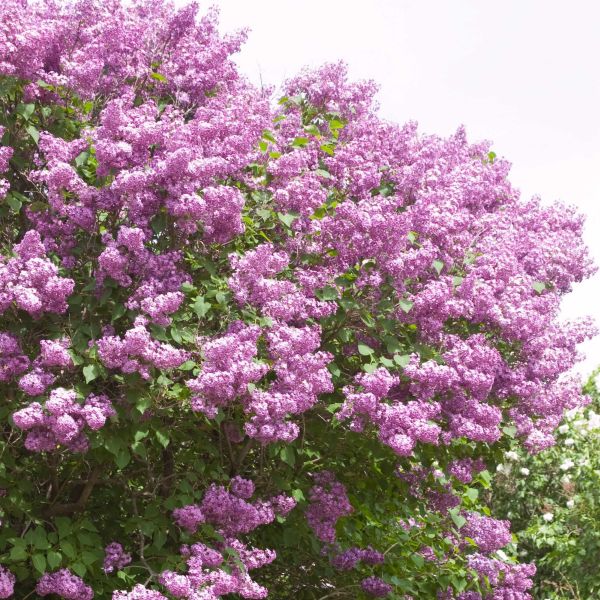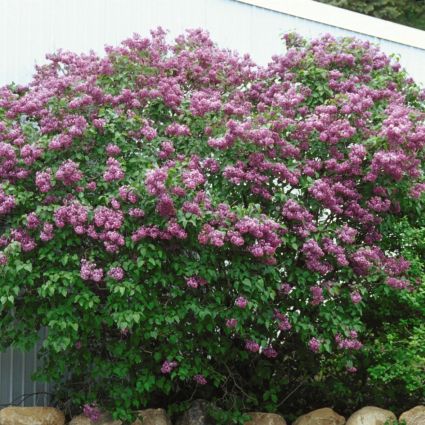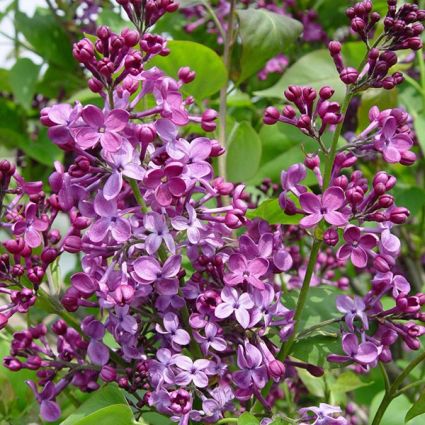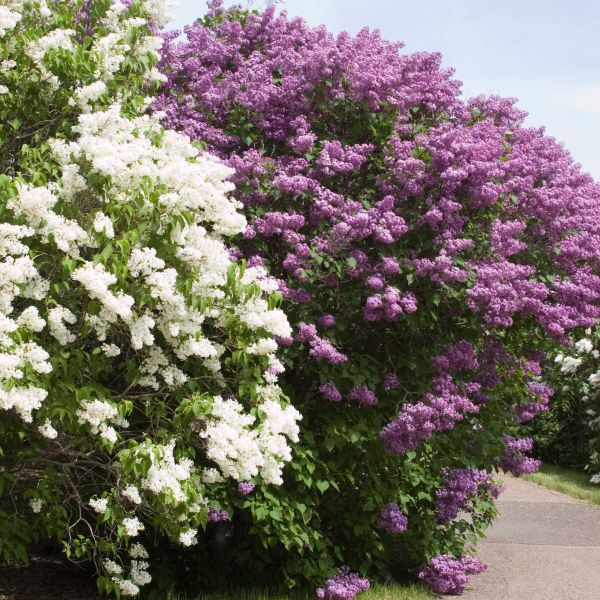Pocahontas Lilac
Syringa x hyacinthiflora 'Pocahontas'
Planting & Care
Planting & Care
Delivery and Shipping
Delivery and Shipping
Preorder Shipping Schedule
We ship your plants when it's safe to transport them to your zone. Dates are estimated and subject to weather delays.
| Zone 3-4 | Week of March 30th |
| Zone 5 | Week of March 16th |
| Zone 6 | Week of March 2nd |
| Zone 7 | Week of February 23rd |
| Zone 8-12 | Week of February 15th |
Shipping Rates
Ships in 3-4 business days • Tracking provided • Weather protected
| Under $50 | $9.99 |
| $50 - $99.99 | $14.99 |
| $100 - $149.99 | $16.99 |
| $150 - $198.99 | $24.99 |
| $199+ | FREE |
✓ Zone-specific timing • ✓ Professional packaging • ✓ Health guarantee

Plant Sentry™ Protected
Your order is protected by our compliance system that:
- Prevents restricted plants from shipping to your state
- Ensures plants meet your state's agricultural requirements
- Protects gardens from invasive pests and diseases
Your garden space is too precious for mediocre Lilac varieties. If you're looking for a top performer when it comes to bloom coloration and flower count the Pocahontas Lilac (Syringa x hyacinthiflora 'Pocahontas') is a top contender. This striking, tall, and dramatic Lilac bursts onto the spring scene with a profusion of deep violet flowers that fill the air with the enchanting scent of spring.
The Pocahontas is a stately Lilac that creates a stunning display of deep purple flower buds. This variety blooms in early spring and opens to reveal even more opulent popping purple-colored florets. As these blooms open, you will notice that Pocahontas Lilac clusters take on an ombre of pinks and purples.
Prepare your camera. You will want to take pictures of these winged wonders as they pause among the clusters of dripping Lilacs. Not only is this Lilac known for its ample blooms that are unimaginably dark, but it also features even green foliage and a vigorous growth habit. You will have trouble deciding if you prefer the lavished spectacle of these flowers from a distance or the intricate, heart-shaped blooms and leaves up close. Luckily, you can appreciate both.
The fragrant blooms of this dark beauty cannot wait to show off its uniquely hued blooms and blooms two weeks earlier than French hybrids. Its blissfully deep buds will excite you and you'll wait alongside hummingbirds, bees, and butterflies in anticipation for the Pocahontas Lilac's heavenly scent as each of its striking blooms opens. The heart-shaped leaves are a lush green and hold their color until fall.
Planting and Application:
Use it as a beautiful way to block the view of your neighbors as a screen. Or take advantage of its energetic growth habit and plant several ten feet from the back of your patio as an informal hedge. The rich hues of the Pocahontas Lilac make it a breathtaking addition as a back border, anchor planting and anywhere you can admire it from afar and up close.
Lilacs are a fantastic privacy screen with big benefits! Use a series of staggered rows to fill a wide, open area with magnificent spring blooms while blocking noise, prying eyes and slowing wind. You'll love the billowy, easy-breeze sense of privacy all season long. Create a mixed Lilac border for varied blooms and extended bloom times all spring!;
Add a few to your cottage border, behind a perennial garden and are must-haves to include in the cutting garden for plenty of fresh materials. Don't miss out on the dazzling beauty and alluring scent of the outstanding garden accents. Don't go another spring without a prolific source of fabulous Lilac blooms.
- Blooms 2 Weeks Earlier Than French Hybrids
- Great Windbreak & Privacy
- Violet Panicle Blooms
- Early Blooming Pollinator Plant
- Deciduous Shrub - Great Fall Color
#ProPlantTips for Care:
The Pocahontas Lilac likes to dance in the sunshine and keep its feet dry with fast-draining soil. Plant Lilacs in enriched organic soil with moderate moisture access for best results. If you use nitrogen fertilizer, avoid getting any near the root ball. Mulch the area well so you won't have to worry about any lawn fertilizer around the base of this plant.
Deer-resistant so you'll be saved the time and trouble of dealing with costly measures to keep it safe from harm. If you live with deer in your area, apply repellent spray on planting day. Deer are hungry and curious, and you want to train them to leave your plants alone. Reapply according to the label.
Air circulation is important for Lilacs, so find a breezy place for them to perform at their best. It's best to avoid low spots or heavily enclosed locations that trap airflow. Fertilize in early spring and again in mid-summer with Dr. Earth Organic and All Purpose Fertilizer, following directions on the package.
Avoid removing the blooms or pruning the plant at any time except immediately after the flowers fade, to prevent removing next year's flowers. Don't miss a single bloom! Follow these easy Pruning steps for the best flowering. You can prune these flowering shrubs into small multi-stemmed tree-form for a unique specimen and garden highlight!
- Full Sun
- Easy to Grow & Low Maintenance
- Adaptable to Many Soil Types
- Moderate Moisture & Mulched Beds
- Prune After Flowering
Let the Pocahontas Lilac show you the way with its glittering, shining, sweet-smelling blooms. Order yours at NatureHills.com while we still have them in stock.
Frequently Asked Questions
How big do Lilacs get?
A Lilac bush can obtain a mature height of around 8 - 12 feet and a mature width of 8 - 10 feet. You can easily prune them to any size or shape you need with annual trimming.
How fast do Lilacs grow?
Lilacs have a medium growth rate and one might see 1 - 2 feet of new growth per year in optimal growing conditions.
Is Lilac a tree or a bush?
Lilacs are shrub-form plants that can be pruned into small tree-form specimens if desired. They are typically sold with their lower limbs intact and have multi-stemmed/multi-trunked growth naturally.
Which is the most fragrant Lilac?
Lilac's iconic scent lasts for a week or more after they've opened and some of the most fragrant (arguably) are the Beauty of Moscow, President Grevy, the yellow Primrose and the Sensation Lilac!
What shipping options do you offer?
NatureHills.com works closely with our growers and nursery professionals to ensure we ship when it is most appropriate for your area. Our goal is to deliver the hardiest plants by avoiding extreme high and low temperatures. Check out our shipping schedule for more information and to learn our wills and won'ts when it comes to shipping plants. Find your Lilac Bushes for sale here at NatureHills.com!
-
Botanical Name
-
Class
-
Species
-
Cultivar
-
Growing Zones
-
Height
-
Width
-
Sunlight
-
Growth RateModerate
-
Flower Color
-
Leaf Color
-
Fall Color
-
FragrantYes
-
Bloom PeriodEarly Spring, Late Spring
-
Does Not Ship ToAK, HI, ID, MT, OR
